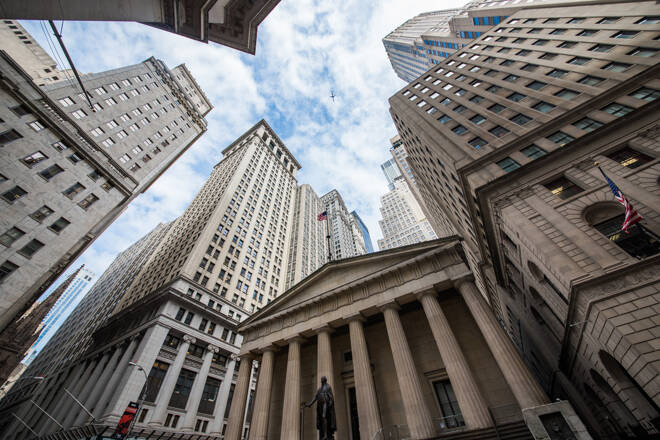Advertisement
Advertisement
Facebook’s Advertiser Diversification to Cushion Boycott Impact; Buy on Weakness: Morgan Stanley
By:
“While the current boycott cancellations don't look troubling, uncertainty around the breadth and duration of this boycott could create tactical pressure on Facebook," wrote Brian Nowak, equity analyst at Morgan Stanley.
Aiming to pressurize Facebook, an American social media conglomerate corporation based in California, to crack down on fake news and hate speech has prompted several corporate advertisers to pull out their advertising from the biggest social media site platform.
Over the past week, several companies, including Unilever, Starbucks, Coca-Cola, Honda and others, have signed for an advertising boycott of social media platforms including Facebook and Twitter.
Ben & Jerry’s, Verizon Wireless and Eddie Bauer have also joined the race to pause advertisements for July. Following this, Facebook’s shares plunged over 10% from high of $245.18 on June 23.
Morgan Stanley: “We’d buy on weakness”
“Key points that could minimize any material Facebook impact: In our view, it is important to remember that 1) Facebook’s advertising dollar base is highly diversified, as on its 1Q 2019 earnings call, the company said that ‘our top 100 advertisers represented less than 20% of our total ad revenue. “Facebook’s advertiser base likely has grown by more than 10% since then, meaning their ad base could be even more diversified. 2) Facebook has an incredibly strong direct-response transaction-driven ad product most recently seen in 1Q results that DR advertisers will step in and bid with if/when pricing drops. The ability for DR advertisers to spend more is likely very strong right now given the current macro strength in e-commerce,” said Brian Nowak, equity analyst at Morgan Stanley in a note to clients.
“While the current boycott cancellations don’t look troubling, uncertainty around the breadth and duration of this boycott could create tactical pressure on Facebook. We intend to lean on the above math as our proxy as we try to gauge the impact on Facebook’s ad business…and are buyers on weakness when near-term sentiment on this scaling platform becomes overly bearish and valuation gets depressed.”
Brian Nowak, equity analyst at Morgan Stanley further wrote that “we are positive on Facebook’s monetization roll-out of Instagram as well as Facebook’s ability to continue to innovate and improve its monetization. Combined with high and growing engagement we see monetization upside going forward. We see the monetization of Instagram adding $4 billion of incremental ad revenue in 2021.”
“Investing from a position of strength to drive faster long-term growth: We are modelling 11% GAAP opex (excluding one-time items) growth in 2020, implying an incremental $5 billion in opex. Our base case model implies opex per employee moderates in ’20 while Facebook hiring remains roughly flat on an absolute basis. We believe Facebook will grow EPS at a 14% CAGR (2019-2022),” Morgan Stanley’s Nowak added.
Facebook target price
Morgan Stanley target price is $230 with a high of $280 under a bull scenario and $160 under the worst-case scenario. Thirty-two analysts forecast the average price in 12 months at $248.21 with a high of $300.00 and a low of $185.00. The average price target represents a 12.50% increase from Monday’s price of $220.64, according to Tipranks. From those 32, 29 analysts rated ‘Buy’, three rated ‘Hold’ and none rated ‘Sell’.
About the Author
Vivek Kumarauthor
Vivek completed his education from the University of Mumbai in Economics and possesses stronghold in writing on stocks, commodities, foreign exchange, and bonds.
Advertisement
